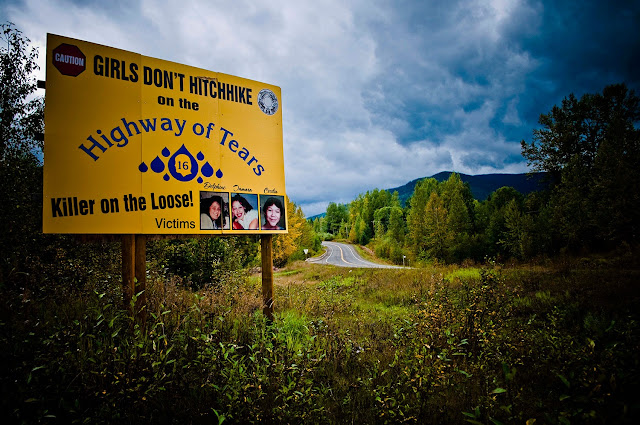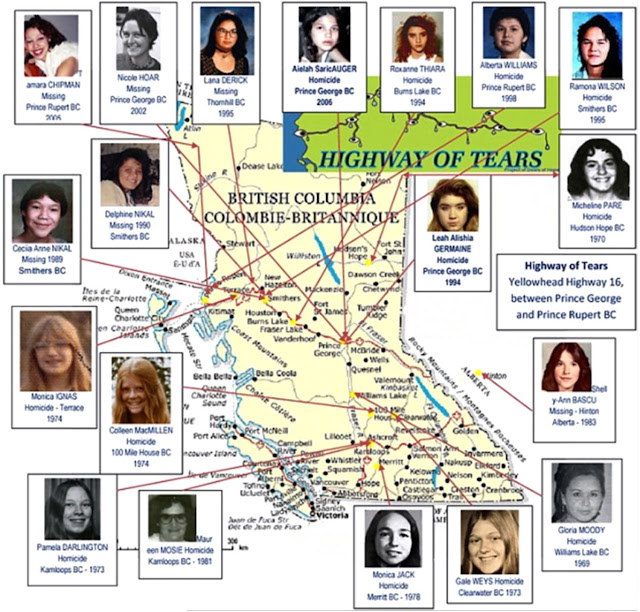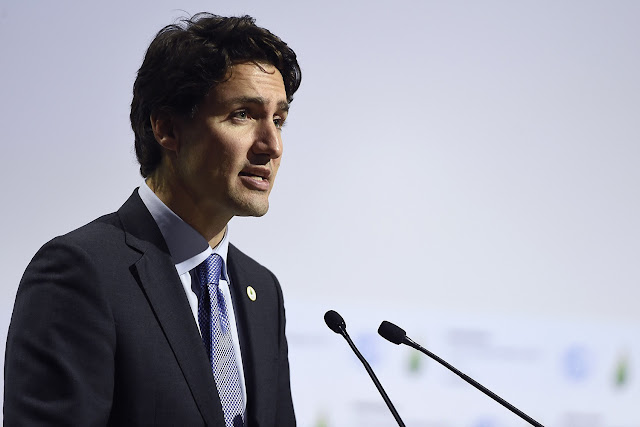A section of HIghway 61, known as the Highway of Tears, after a series of murders and disappearances Wiki Commons
SOME vanished without a trace, others were found dead in shallow graves near a highway.
More than 1,200 of Canada’s indigenous women have disappeared or been been murdered since 1980.
Highway 16, a notorious stretch of road where dozens of women have simply vanished or turned up dead, has come to be known as the Highway of Tears.
No one knows exactly how many have perished along the 450-mile road through British Columbia, though some say the number could be as high as 40.
Many of the missing belong to the country's indigenous communities Wikimedia
Many of the missing belong to remote indigenous communities, with little or no transport or phone coverage, and who are forced to hitchhike to get around.
Their fate has been a festering wound in many of Canada’s more than 600 native communities, with allegations of mishandled murder investigations or failures to look into missing persons cases.
However, the Canadian government finally last week announced an enquiry to find out what happened to them.
A 2014 report and an update this year by the Royal Canadian Mounted Police identified 1049 murdered and 172 missing aboriginal women dating back to 1980.
Some of the suspected Highway of Tears serial killer victims and where they were found Highway-of-Tears / Flickr
Human Rights Watch, native leaders and activists have been calling for an enquiry for more than a decade, since dozens of prostitutes went missing in Vancouver’s seedy Downtown Eastside and were later determined to have been victims of a serial killer.
The first killing was recorded in 1969 when the body of Gloria Moody was found. The 26-year-old had gone out to a bar but never returned home.
Six years later, the body of Monica Igna, 15, was found in a gravel pit, and in 1988 Alberta Williams turned up dead one month after being reported missing.
In 1994, the bodies of three indigenous teenagers were found dumped by the roadside, sparking angry calls for police to do more to protect vulnerable young girls and women.
More recently, the body of pregnant student Loretta Saunders was found by police in March last year — her flatmates were later charged with her murder.
The previous Conservative administration had long resisted calls for an enquiry, seeing the disproportionate number of deaths and disappearances as resulting from domestic violence.
Canadian Prime Minister Justin Trudeau announced a public enquiry will be held in the spring following consultations with victims’ families and native groups.
He is seeking a rapprochement with the 1.4 million descendants of Canada’s original inhabitants, who make up 4.3 per cent of the country’s total population.
He said: “It is time for a renewed nation-to-nation relationship with First Nations peoples."
Mr Trudeau added the victims deserve justice.
“Their families (deserve) an opportunity to heal, and to be heard.
“We must work together to put an end to this ongoing tragedy.”














No comments:
Post a Comment